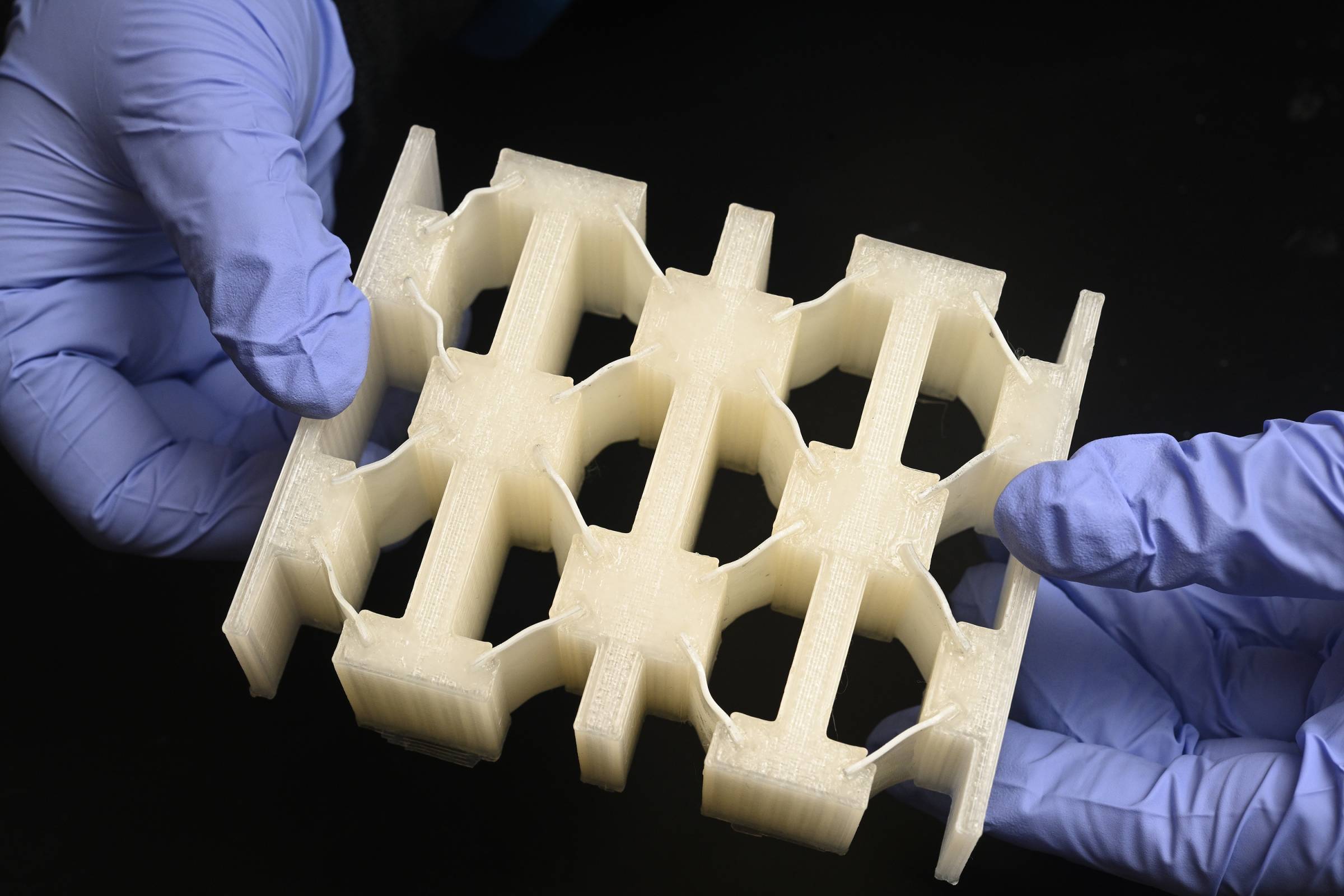Mar 21, 2022 | No Comments | By Michelle Pagano
A team of Johns Hopkins University researchers have created energy-absorbing material that is lighter, absorbs more impact than metal, and is reusable.
The research team discovered that liquid crystal elastomers (LCEs), a reusable and highly energy-absorbing material, can be incorporated into military armor and automobile and aerospace parts to increase their impact absorption capability. As part of its analysis, the research team reports its efforts to use LCEs to develop the lightweight energy-absorbing material in a recently published Advanced Materials article.
“Vicky Nguyen, another fellow in HEMI, informed me of liquid crystal elastomers, and we observed this material has a very good energy absorption capability, which increases at higher speeds, said senior author Sung Hoon Kang, assistant professor of mechanical engineering and HEMI Fellow. “We continued examining liquid crystal elastomers, revisited my previous research about how geometric designs correlate with energy absorption, and discovered there is synergy between this material and geometry that enhances energy absorption capability.”
The inspiration for this research stems from Kang’s examination of how car bumpers absorb impact and previous work on meta-material that absorbs energy from impact. To address the current challenges of energy-absorbing materials, the research team investigated energy absorption behavior of a form-like LCE structures over a wide range of impact speeds by measuring their responses. Besides, they also applied computer simulations to help understand how the LCE material behavior and the geometry synergistically contributed to energy absorption.
Currently, Kang is cultivating a collaboration with other researchers and a helmet company to design, fabricate, and test next-generation helmets for the Department of Defense and athletes. Additionally, Kang and the research team are investigating approaches to further increase energy absorption of the material by incorporating an additional energy absorption mechanism.
The research team included: Kang, Thao (Vicky) Nguyen, professor and Marlin U. Zimmerman, Jr. Faculty Scholar at Johns Hopkins University; Christopher M. Yakacki, associate professor at the University of Colorado Denver; and Seung-Yeol Jeon, Beijun Shen, Nicholas Traugutt, Zeyu Zhu, and Lichen Fang, who are affiliated with the Hopkins Extreme Materials Institute.
This research is supported in part by the Army Research Office (Grant Number W911NF-17-1-0165) and the Johns Hopkins University Whiting School of Engineering Start-Up Fund.




